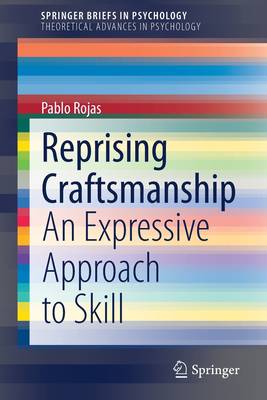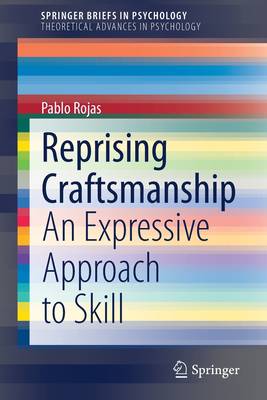
- Afhalen na 1 uur in een winkel met voorraad
- In januari gratis thuislevering in België
- Ruim aanbod met 7 miljoen producten
- Afhalen na 1 uur in een winkel met voorraad
- In januari gratis thuislevering in België
- Ruim aanbod met 7 miljoen producten
Reprising Craftsmanship
An Expressive Approach to Skill
Pablo RojasOmschrijving
Craftsmanship provides an insight into an inherently human dimension of work resulting from our immersion in an occupation or profession. The present book illustrates and defines the vital, social, aesthetic, and ethical dimensions involved in craftsmanship, which rejects a dissociation between handwork and wit, or between action and thought. This also contrasts with the neglect contemporary psychology has shown toward craftsmanship and its reduction to mere 'human factors.' Drawing on artistry as an emblem, the present account conveys that skilful action can only be renewed in a cycle involving both the personal and the transgenerational.
There is little doubt in psychological and anthropological literature that the current global crises cannot be separated from social predicaments; namely, from the commodification of craftsmanship. In this book, the development of skilful action attests to a fundamental involvement required to sustainably perpetuate human endeavours.The role of expressivity in reappropriating technical activity is key in showing the continuous revaluation of our ethics and aesthetics of work, practice, and creation. The overall arc of the volume shows a movement from responsivity to responsibility. In short, if we are to reformulate our relationship to work and craft, we need to see through our responsibility in technique. The particularities of craftsmanship described here aim to contribute to such reformulation.
Specificaties
Betrokkenen
- Auteur(s):
- Uitgeverij:
Inhoud
- Aantal bladzijden:
- 120
- Taal:
- Engels
- Reeks:
Eigenschappen
- Productcode (EAN):
- 9783030801311
- Verschijningsdatum:
- 1/09/2021
- Uitvoering:
- Paperback
- Formaat:
- Trade paperback (VS)
- Afmetingen:
- 156 mm x 234 mm
- Gewicht:
- 204 g

Alleen bij Standaard Boekhandel
Beoordelingen
We publiceren alleen reviews die voldoen aan de voorwaarden voor reviews. Bekijk onze voorwaarden voor reviews.









